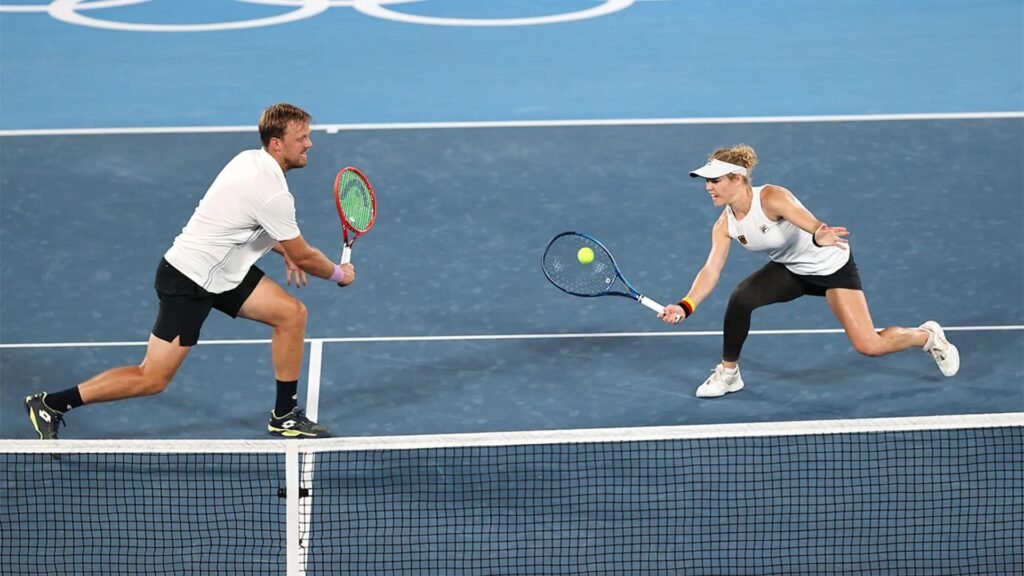Sports serve as a microcosm of society, reflecting its norms, values, and evolving dynamics. The Bahá’í Faith places a profound emphasis on the principles of equality and unity, advocating for the eradication of gender disparities across all domains of human activity. Competing for gender equality within the realm of sports is thus not merely a pursuit of fair play but a spiritual and social imperative grounded in the teachings of the Bahá’í Faith. This article discusses how the intersection of sports and gender equity aligns with Bahá’í teachings, exploring various dimensions and implications.
At the outset, it is crucial to delineate the concept of sports equity. Sports equity encompasses equal opportunities for participation, representation, and recognition, irrespective of gender. This aligns with the Bahá’í principle that all humans, regardless of gender, are created equally and possess intrinsic worth. In the context of sports, this means women and men should have equitable access to facilities, training, and competition. The narratives surrounding the exclusion or limitation of women in sports provide fine illustrations of the societal hurdles that the Bahá’í teachings vehemently reject.
Moreover, one cannot overlook the Bahá’í concept of education as a fundamental stepping stone toward achieving gender equality in sports. Education empowers individuals to demand their rights and challenge societal norms that perpetuate inequity. In practical applications, this may involve the establishment of comprehensive programs aimed at educating both men and women about gender equality and the significance of female participation in sports. These educational endeavors can take various forms, ranging from workshops to community outreach initiatives.
Additionally, the cultivation of a paradigm that views sports as a vehicle for fostering social change is instrumental in advocating for gender equity. The Bahá’í Faith encourages the engagement of individuals in activities that not only advance personal development but also contribute positively to society. Through sports, individuals can experience camaraderie, teamwork, and resilience, which are essential traits for collective effort toward equality. By fostering an environment where both genders can thrive, the principles of the Bahá’í Faith gain practical manifestation.
Another vital aspect to consider is the role of leadership in promoting gender equity in sports. According to Bahá’í teachings, leadership is not an authority to wield but a responsibility to serve. Leaders in sports organizations and communities are called upon to model equitable practices and to disseminate the ideals of inclusivity. By actively promoting female athletes, endorsing women’s leagues, and ensuring equal media coverage, leaders can challenge the status quo and instill a culture of support and recognition for female participation in sports.
The visibility of female athletes, both on and off the field, plays a pivotal role in shaping societal perceptions of gender roles. The Bahá’í Faith values the impact of role models—individuals who exemplify the principles of equity and excellence. When women excel in sports, they not only elevate their stature but also inspire future generations of girls to pursue their passions unencumbered by traditional gender limitations. Highlighting such role models creates an empowering narrative that encourages young women to aspire toward athletic achievements.
On a competitive front, gender parity in sports can also lead to enhanced performance and outcomes. Research suggests that mixed-gender competitions can unveil unique perspectives and strategies that enhance the overall quality of the sport. The Bahá’í principle of collaboration fosters this idea, positing that when diverse groups collaborate, the cumulative strengths outweigh the individual limitations. Thus, mixed-gender events not only serve as a testament to equality but can also be a means to elevate the sport itself, engendering a culture that values diverse contributions.
Moreover, it is indispensable to address the systemic barriers that hinder gender equity in sports. Institutional sexism and cultural biases often manifest in the form of pay disparities, lack of sponsorship opportunities, and inadequate representation in leadership roles. These entities must be dismantled to pave the way for gender equality. Efforts should be directed toward policy advocacy, campaigning for legal reforms that mandate equal pay for athletes and equal funding for women’s sports programs. Consequently, tangible changes can result in a more equitable sports landscape reflective of Bahá’í principles.
The engagement of men in the conversation about gender equity also merits attention. The Bahá’í teachings advocate for the active involvement of all genders in the pursuit of equality. Men must become allies in the quest for dismantling patriarchal structures within sports and society at large. Initiatives that encourage men to support women athletes and advocate for policies that promote equitable practices are essential. Such collaborative efforts can forge a unified front striving toward a common goal: equality and justice in sports.
Lastly, the faith’s emphasis on the global unity of humanity underscores the idea that sports can transcend cultural and geographical boundaries. Global sporting events, such as the Olympics or the FIFA World Cup, provide unique platforms to promote gender equality on an international scale. The Bahá’í teachings emphasize that collaborative efforts at the global level can lead to paradigm shifts, impacting societal attitudes toward gender roles and participation in sports.
In conclusion, the journey toward achieving gender equality in sports is multifaceted and requires a collective endeavor grounded in the principles of the Bahá’í Faith. By aligning sports with the values of education, leadership, visibility, systemic reform, and global cooperation, individuals can pivot from mere acknowledgment of gender disparities to actionable efforts that foster an equitable and inclusive sporting atmosphere. Engaging in this pursuit not only fulfills spiritual and moral obligations but also enriches the global community, creating a legacy of equality and excellence for future generations.
